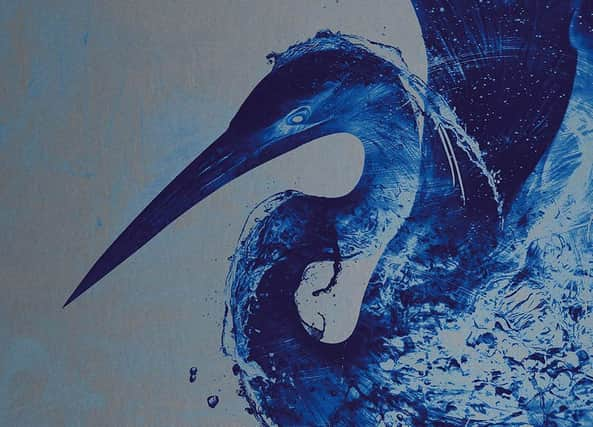Book review: The Rain Heron, by Robbie Arnott


The Rain Heron is an evocative and poetic ecological myth set in a post-war world of climate disaster. As such, it was never likely to offer much in the way of feel-good escapism in the middle of a pandemic, and if you have been heartened by the improvement in air quality during lockdown, reports of rewilding in urban areas or promises to make the economic recovery a green one, this book will bring back all the gnawing anxiety about what we are doing to the planet with a thump, and remind you how little time we have left to act.
The bird of the title is a magical creature whose translucent feathers are made of water droplets and which can throw out extreme heat, rainfall, mists or ice, bringing bounty or brutality. It is a remarkable creation, one that feels like an age-old fable from an ancient culture.
Advertisement
Hide AdThis mesmerising and beautifully written tale begins with three seemingly disparate narratives. A starving rice farmer has a near death encounter with the heron, after which her crops mysteriously flourish.
Meanwhile, Ren, a hermit and survivalist, whose story hints at past tragedy and mass disruption in a time and a city we may recognise, remembers a childhood sighting of the bird with her grandmother. She now lives in the mountains and trades deerskins with Barlow, a kindly father figure and the only other human she ever encounters. Her life is disrupted when soldiers come to her cave in search of the heron on behalf of a regime that, while doubting the existence of the myth, suspects that capturing it could give it control of the climate.
Finally, in the south, a secretive method of harvesting squid ink passed down by a fishing village’s inhabitants for generations is threatened by a northerner intent on taking over production of the valuable commodity. A young girl, Zoe, is taught about her community’s symbiotic relationship with nature and the delicate balance which the northerner’s ambitions to “revitalise” and “safeguard” the industry seem likely to disrupt.
Each narrative thread could stand as a shocking, beautiful and moral short story in its own right, but Robbie Arnott weaves them seamlessly together into a satisfying whole.
The political backdrop to the story – the coups, the devastation, the mass movements of people – is never fully explained, but the effects are everywhere, and Arnott’s prose is thrilling when describing the untouched corners of otherwise ruined landscapes.
“The tarn lay still and mirror-like,” he writes, “just as it had when she’d first seen it. Moss still carpeted the grotto floor, green rocks still humped at the tarn’s edge, and the ancient, gnarled tree still stood on the opposite side of the water.”Blood, pus, rot and stench are never far away in this scarred landscape, however, bones are shattered, farmland is salted and streams are poisoned with waste. Daniel, an army medic, foresees only “a future of shining bile.” Kindness and love, when they come, seem only to offer a temporary relief.
Advertisement
Hide AdBlindness is a recurring theme, reflected both in an attempt to hide the heron’s light by caging it and covering it in a shroud and in the wound caused when a soldier’s eye is plucked out during its capture. Even with one eye, though, the soldier is still able to recognise truth, goodness and, eventually, redemption.
The Rain Heron, by Robbie Arnott, Atlantic, 296pp, £14.99
A message from the Editor
Thank you for reading this story on our website. While I have your attention, I also have an important request to make of you.
Advertisement
Hide AdWith the coronavirus lockdown having a major impact on many of our advertisers - and consequently the revenue we receive - we are more reliant than ever on you taking out a digital subscription.
Subscribe to scotsman.com and enjoy unlimited access to Scottish news and information online and on our app. With a digital subscription, you can read more than 5 articles, see fewer ads, enjoy faster load times, and get access to exclusive newsletters and content. Visit https://www.scotsman.com/subscriptions now to sign up.
Joy Yates
Editorial Director